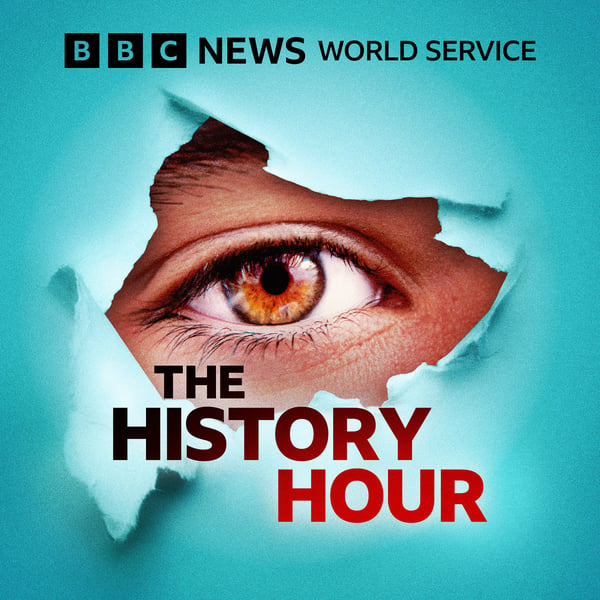Panama and the 'Purple Heart Battalion'
The History Hour
BBC
4.4 • 879 Ratings
🗓️ 14 December 2024
⏱️ 51 minutes
🧾️ Download transcript
Summary
Max Pearson presents a collection of the week's Witness History interviews from the BBC World Service. Our guest is Joan Flores-Villalobos, Assistant Professor in the Department of History at the University of Southern California, and author of The Silver Women: How Black Women’s Labor Made the Panama Canal.
First, we hear from a man involved in the handover of the canal from the United States to Panama in 1999. Then, DJ and singer Leonardo Renato Aulder explains how the canal led to the creation of Reggaeton music.
Next we go to Cuba. An old comrade of Fidel Castro recounts the violent start of the Cuban revolution in 1953. And a member of the Obama administration explains how he negotiated better US-Cuba relations in 2014.
Finally, the story of the 442nd US military regiment, made up almost entirely of Japanese Americans, that earned more than 4,000 Purple Heart medals for extraordinary heroism during World War Two.
Contributors: Alberto Aleman Zubieta - Panama Canal administrator. Leonardo Renato Aulder - Reggaeton singer and DJ. Joan Flores-Villalobos - Assistant Professor at the University of Southern California. Agustín Díaz Cartaya - Cuban revolutionary. Ben Rhodes - Speechwriter for US President Barack Obama. Clyde Kusatsu - son of 442nd Regiment veteran.
(Photo: World War Two veterans from the highly decorated 442nd Regiment in 2015. Credit: Gina Ferazzi/Los Angeles Times via Getty Images)
Transcript
Click on a timestamp to play from that location
| 0:00.0 | Hello and welcome to the History Hour podcast from the BBC World Service with me, Max Pearson. |
| 0:10.6 | This week's Witness History interviews from the BBC World Service. Coming up, Panama, how the nation regained control of the canal, and how Panama also gave the world reggaeton. |
| 0:21.4 | I used to tell him like, |
| 0:22.5 | Bueno, me, et con la man up and everybody, like, lift their hands and move your body. |
| 0:27.8 | And it was so beautiful to see people do what you wanted. |
| 0:32.5 | Also, 1953, and the first shots in Castro's Cuban Revolution. |
| 0:37.9 | I launched myself at the nearest soldiers firing my 22 rifle again and again and again |
| 0:44.4 | until I run out a bullet. |
| 0:46.7 | And from the Second World War, the remarkable story of the U.S. Army unit made up of Japanese-Americans. |
| 0:53.3 | The boys used to feel that they had more to prove, |
| 0:56.7 | and the most quick way to do it was to volunteer for the military, |
| 1:00.1 | even if it meant dying for your country. |
| 1:02.5 | But first, the Panama Canal, a vital waterway built more than 100 years ago, |
| 1:07.7 | and controlled for decades by the US. |
| 1:10.7 | Jill Kursley takes us back to 1999 |
| 1:12.7 | when it was handed over to Panama. |
| 1:16.1 | We were all looking for, you know, after 85 years, |
| 1:21.5 | the day when Panama was going to be all by ourselves |
| 1:24.8 | in charge of operating and controlling the Panama Canal. |
| 1:29.0 | That's Alberto Alemann Zubietta, who was an administrator for the canal when it was transferred |
| 1:34.8 | from American to Panamanian rule in December 1999. Panama is a very small country, smaller than |
| 1:43.7 | the U.S. state of South Carolina. |
... |
Please login to see the full transcript.
Disclaimer: The podcast and artwork embedded on this page are from BBC, and are the property of its owner and not affiliated with or endorsed by Tapesearch.
Generated transcripts are the property of BBC and are distributed freely under the Fair Use doctrine. Transcripts generated by Tapesearch are not guaranteed to be accurate.
Copyright © Tapesearch 2025.

